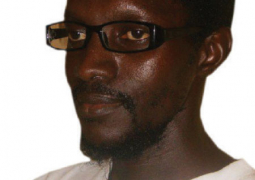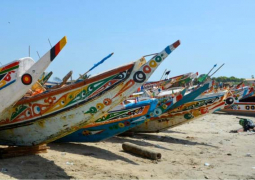The
Marking the day was organized by the Gambia Federation of the Disabled in collaboration with the Department of Social Welfare, and eight Disabled People’s Organisations (AMDG, GADHOH, GAPD, GNPC, GOLD, GOVI, NUDY, RSOD).
The theme chosen this year is: “Together for a better world for all:
Including persons with disabilities in development”.
This day was set aside by the UN General Assembly in 1981 aimed at creating awareness on disability issues, applauding the potential of people with disabilities and recognizing disability rights.
This was followed by Resolution 1993/29 of 5 March 1993 of the UN Commission on Human Rights in which member states were requested to highlight the observance of 3rd December annually.
In 2008, the UN Convention on the Rights of Persons with Disabilities (UNCRPD) entered into force, and has now been signed by 153 countries, with 106 ratifications.
2011’s commemoration of World Disability Day in The Gambia will start with a march past from Westfield at 10 am along Kairaba Avenue and ending at the GOVI compound, MDI Road, with an opening ceremony for GOVI’s new Goalball pitch at 11am. At midday, there will then be a seminar on disability rights, with a panel of experts, including speakers from the African Commission for Human and Peoples’ Rights, the Gambia Bar Association and TANGO.
The Rural Society of the Disabled will hold a celebration in Basse, in URR, on the same day, to mark the event for all the people with disabilities who live in the rural areas of the country. This will include a procession from the Basse and Mansajang highway junction (by the QCell shop) at 9am, a programme at RSOD in Manneh Kunda at 10am, followed by a football match at 4pm between RSOD and Kaba Kama village, and ending the day with a disco dance at Plaza Nightclub from 9pm.
To give a global perspective, in 2011 the first World Health Organisation report on disability estimated that in any developing country, up to 15% of the population can have a disability, whether individuals are born with a disability or become disabled through no fault of their own, such as by road traffic accidents, or through illnesses, i.e. polio or malaria.
The report concluded that people with disabilities have poorer health, lower educational achievements, less economic participation and higher rates of poverty than people without disabilities, and that women, older people and people living in poverty are more likely to be affected.
The Gambia Federation of the Disabled (GFD) represents over 10,000 persons with disabilities who are members of the eight disabled people’s organizations in this country.
In 2011, there have been some positive developments for people with disabilities, which have included Gambian sign language interpreters being used on television through the IEC on the election programmes, as well as a successful fundraising gala dinner and the development of a school for children who are deaf in Basse, as a pilot project.
The Government is also continuing its community rehabilitation programme, which aims to reach more people in the rural areas.
A press release from the federation called upon the government to give its full commitment to the adoption of the recently formulated Integrated National Disability Policy to uphold the rights of persons with disabilities in this country, leading to the development of a Disability Act and the signature and ratification of the UNCRPD.
Article 31 (1) of the 1997 Constitution states that the right of the disabled and handicapped to respect and human dignity shall be recognized by the state, and sub-section two of the same article (31 (2)) states that disabled persons shall be entitled to protection against exploitation and to protection against discrimination, in particular as regards to health services, education and employment.
John Wolfensohn, former President of the World Bank, once said in 2002 that ‘‘the Millennium goals for the eradication of poverty could never be achieved if disabled people were not a priority of poverty eradication agendas’’.
He added: “Bringing disabled people out of the corners and back alleys of society, and empowering them to thrive in the bustling centre of national life, will do much to improve the lives of many from amongst the poorest of the poor around the world.”
“On World Disability Day 2011, we call upon the whole Gambian community to actively participate in the celebrations on Saturday 3rd December so that we do truly work together for ‘a better world for all,” the release added.





